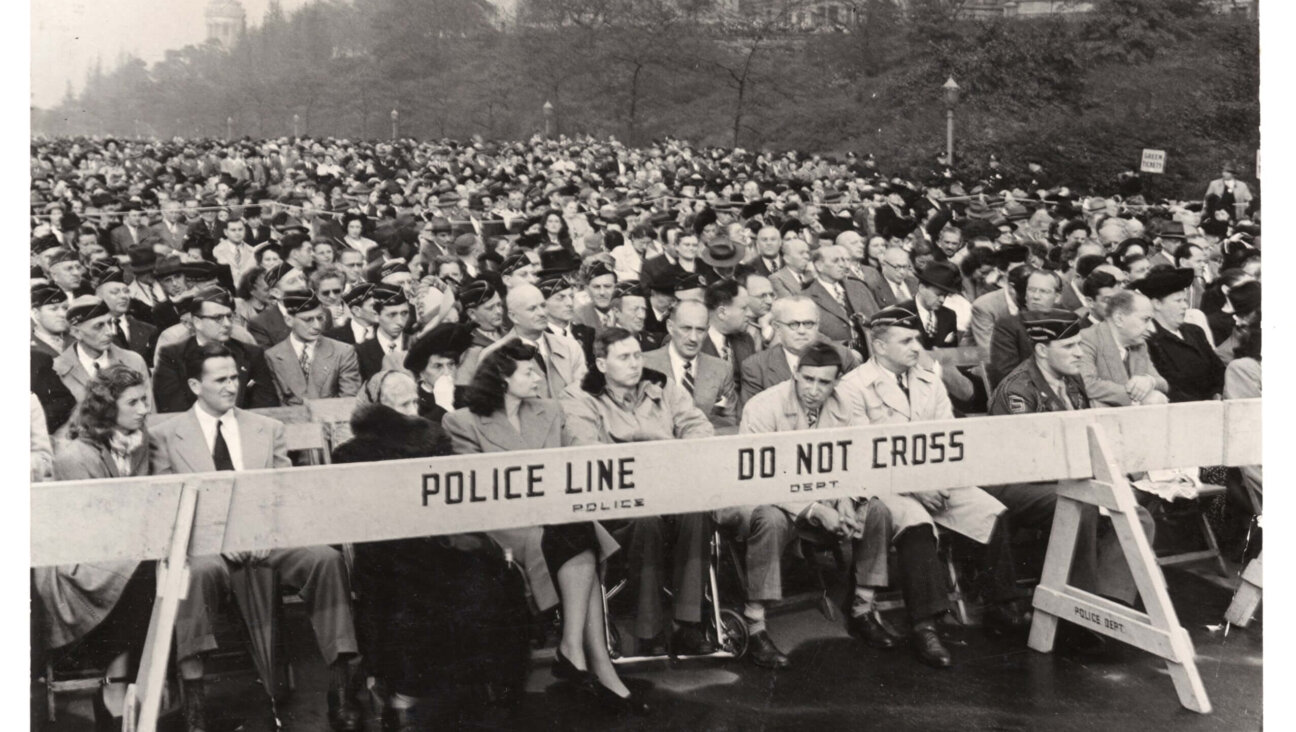The Fiery Prophet Who Named Jewish Self-Hatred

Courtesy of Oldenburg University Press
The German Jewish philosopher Theodor Lessing was a firebrand, author of profoundly unsettling books such as 1930’s “Jewish Self-Hatred” (Der jüdische Selbsthaß), a welcome new edition of which has just appeared from Agora from Presses Pocket in France.
It’s translated and introduced by Maurice-Ruben Hayoun, a Germanist who teaches Jewish philosophy at the University of Geneva and publishes frequently on historical questions of Jewish identity and Jewish philosophy. Also a specialist on The Zohar, Hayoun explains that Lessing irked his contemporaries, but posterity has often proven him correct, such as when “Jewish Self-Hatred” states that German Jewry’s quest for social assimilation was a lethal delusion.
Lessing cites a series of exceedingly unhappy Jews, including two Austrian Jewish philosophers, Arthur Trebitsch and Otto Weininger — the hysterical author once described by the Jerusalem Post as “auto-anti-Semitic.”
Lessing’s Zionist foresight made him eventually flee to Marienbad, Czechoslovakia, where he was murdered in 1933 by Nazis who clearly saw him as an early enemy (Czech President Tomáš Masaryk called Lessing “Nazism’s first victim”). Hayoun places Lessing alongside Gershom Scholem — especially in Scholem’s much-admired memoir “From Berlin to Jerusalem: Memories of My Youth” — as a critic of assimilation, although Lessing did not live long enough to be able to pronounce any I-told-you-so’s.
Lessing is less well known for a curious, if less life-or-death, cause that he presciently embraced around the turn-of-the-century: noise abatement. In 1907 he founded the first German anti-noise society (Antilärmverein), to combat urban bedlam.
Certainly Lessing fought exhausting battles to put his ideas across; one student recalled Lessing as “resembling a somewhat fatigued actor” in class, which is understandable given his unrelieved pugnacity, even with people who might ordinarily have agreed with some of his views. For instance, Lessing attacked the now-largely forgotten Prussian Jewish critic Samuel Lublinski for “selling himself’ to the German literary establishment. Part of that establishment, the novelist Thomas Mann, whose work had been lauded by Lublinski, then published a 1910 article stating that Lessing was a “disgraceful dwarf who should consider himself lucky that the sun shines on him, too.”
The controversy, as recounted in Hermann Kurzke’s 2002 “Thomas Mann: Life as a Work of Art. A Biography” does not make any of the participants look good. Like most prophets, who are rarely pleasant people to know personally, Lessing looks better today than he did during his lifetime, especially since his writings may now be read “in the Shadow of Auschwitz,” as one 1994 German study plausibly situates him.
Watch Lessing’s translator Maurice-Ruben Hayoun discuss ethics in 2010.
Watch Hayoun analyze the prewar crises in the German Jewish community, including Lessing’s, at a 2003 Paris colloquium.

I hope you appreciated this article. Before you go, I’d like to ask you to please support the Forward’s award-winning journalism this Passover.
In this age of misinformation, our work is needed like never before. We report on the news that matters most to American Jews, driven by truth, not ideology.
At a time when newsrooms are closing or cutting back, the Forward has removed its paywall. That means for the first time in our 126-year history, Forward journalism is free to everyone, everywhere. With an ongoing war, rising antisemitism, and a flood of disinformation that may affect the upcoming election, we believe that free and open access to Jewish journalism is imperative.
Readers like you make it all possible. Right now, we’re in the middle of our Passover Pledge Drive and we need 500 people to step up and make a gift to sustain our trustworthy, independent journalism.
Make a gift of any size and become a Forward member today. You’ll support our mission to tell the American Jewish story fully and fairly.
— Rachel Fishman Feddersen, Publisher and CEO
Join our mission to tell the Jewish story fully and fairly.
Our Goal: 500 gifts during our Passover Pledge Drive!

























